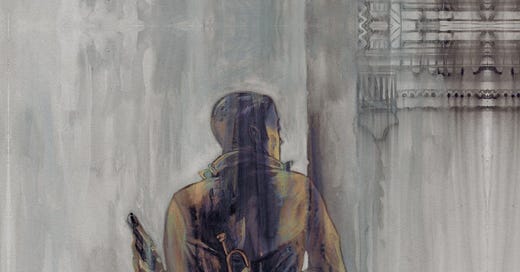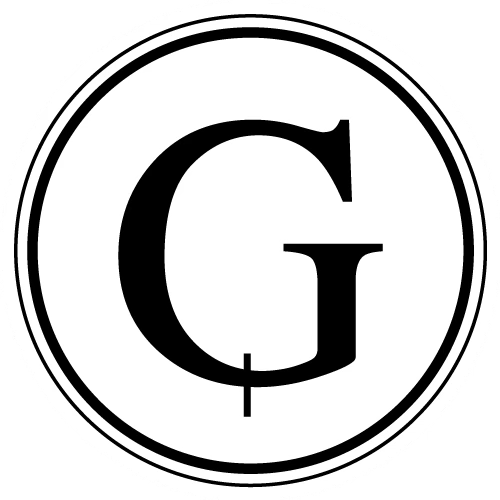What follows is Part 40 of Becoming P.T. Lyfantod
If you missed Part 1, start there:
“That settles it then…” said Iain from across the table. “We’re losing time.”
Just over two hours had passed since we’d emerged from the first trial, and the five of us—showered, fed, and freshly clothed—had gathered once again in Merry’s garage. By some luck we’d come out during a break in the rain, now pounding against the concrete of the driveway outside. The air smelled of damp, and dust burning on the coils of the old space heater in the corner, click-clicking like a broken metronome.
“I was thinking,” Stuart held up his wrist to display a black Casio, complete with calculator. The display read 21:23. “I got a new watch for my birthday last year. But I still have my old one. If I wore this one, and we stashed the old one outside, we’d know exactly how much time had passed as soon as we got out.”
“I want to know why it’s happening.” said Merry. “If we knew that, maybe we could at least predict it.”
“I’d been wondering if it had to do with traveling to Lightfoot’s chamber.” Stuart chewed his lip. “I sort of assumed it was underground, right beneath the stone. What if it isn’t? What if it’s farther? A lot farther?”
“What’s it matter where it is?” Tom drummed his fingers on the table. “We’re teleporting. It’s instantaneous.”
“It might appear that way to us. But—according to Einstein—when you travel near the speed of light, time passes more slowly for you relative to everyone else.”
“Why do you know that?”
“But Stu,” I said. “This is magic. Not science. Shouldn’t the explanation be, you know—magical?”
“Just because it’s magic, doesn’t necessarily mean the laws of physics don’t apply.” Stuart picked up a pen from the table top and let it fall. “You know, Arthur C. Clarke said—”
“Another scientist?” said Tom.
“He’s a science fiction author,” said Merry. “A very famous one.”
“Hmph.”
“Clarke said, ‘Any technology advanced enough is indistinguishable from magic.’ I was thinking—what if this isn’t magic, but technology that’s so far beyond what we have, that it looks like magic?”
“That’s a nice idea, Stuart,” Merry said. “But if it was technology, who made it?”
Iain shrugged. “Aliens.”
I shook my head. “You guys are mixing genres. You can’t have magic and aliens. It’s one or the other—that’s why they’re kept on different shelves.”
“P.T., you can’t base these kinds of decisions on how they organize the bookstore,” Merry said. “Besides, what about Star Wars?”
“She’s got a point,” Iain nodded. “Magic and aliens.”
“Yeah, but… it feels wrong. And is that really magic? I mean—”
Iain started ticking off fingers. “They can move things with their minds, control other people, there are ghosts…”
I grunted.
Merry looked at me. “P.T. Why were you asking Lightfoot about your man in green?”
“Yeah, what’s the story?” said Tom.
“It’s a lot to explain, but—”
“P.T.’s been talking about him for as long as I can remember,” Merry explained. “A white-haired man who always wears green, and shows up unexpectedly, and is never there when anyone else turns to look. Honestly, I thought he was imaginary. Which is why I’m curious that you were asking Lightfoot—”
“Because it’s him who gave P.T. the book,” said Stuart.
“What? Why didn’t you mention that earlier!”
“I didn’t have the chance! And—I mean he didn’t exactly hand it to me. But he left it on the shelf, so I could’ve taken it if I wanted to… But the weirdest part is, I think he’s visiting my mam-gu.” I explained finding him lurking behind a van, and the incident with the handkerchief.
“That’s bloody weird, mate,” said Tom, when I finished. For once I agreed with him.
“I’d hoped Lightfoot might know who he was. Now… I don’t know.”
“I have a theory,” said Iain.
“But Godwyn said the—” Stuart lowered his voice to a whisper. “The Fomorians… would never work with a human.”
“No,” Iain shook his head. “Another theory.”
“Go on then, Lloyd. We’re all ears.”
Iain made a face at Tom. “I was thinking,” he glanced around, “we have to find each of the stones, right?”
We all nodded—except Tom.
“So what if someone started, but couldn’t finish? What if P.T.’s Mig is a failed student of Lightfoot’s?”
Stuart frowned. “So you’re thinking…”
“He led P.T. to the stone, because he needed someone to lead him to the next one. Or the one after that, or…”
“But wait. We don’t know he wanted me to find the stone. We don’t even know if he wanted me to have the Book. He just set it down near me… and the pages he marked were about frogs and faeries, not Lightfoot. I found that on my own.”
“But it makes sense, doesn’t it?” Merry gazed at the rafters, stacked high with moldering boxes, a winter sled, car batteries, extension cords, a rusty charcoal grill. “If someone wanted to find other stones, but couldn’t—they might try to lure others onto the path in order to follow them…”
“But why him?” Tom’s frown was directed at me. “As far as I know, he isn’t a detective, and he isn’t winning any singing competitions. Unless he has a family history of bardic talent we’re as yet unaware of, the logic doesn’t follow.”
“Maybe it wasn’t meant for him.” Merry held up a placating hand. “No offense, P.T. But you just said that the man in green didn’t give you the book, he just set it down near you, right? Maybe he didn’t care who found it, as long as someone did.”
“Then why did he show up at P.T.’s house?” said Iain.
“Because he knew P.T. had it? He has to watch him if he’s to find the stones.” Merry shrugged.
“I think they must be connected somehow,” said Stuart. “P.T.’s been talking about him for ages. He must’ve wanted him to find that book.”
“Here’s a wild idea,” said Tom. “Why don’t you just ask him next time he shows up?”
“It won’t work. He’s so… slippery. At my house, I turned around for half a second—half a second!—and when I looked back he was gone. But there was nowhere for him to go. Mam-gu thinks I’m making him up.”
“Are you making him up?”
“You tell me. Was everything that happened today all in my head?”
“I think for now the man in green might be a dead end…” said Stuart. “Maybe if we figure out more about Lightfoot and the stones, the truth about him will become clearer too.”
“Good thinking,” Merry smiled at Stuart before shooting a glare in Tom’s direction.
He shrugged.
“For now—” Merry rose and went to rummage in the cabinet where we kept everything we needed for our game, “—the most obvious choice is to figure out Lightfoot’s riddle. That’s the only guaranteed way we have to… move this story along.” She plopped back into her chair with five pencils, and five sheaves of paper, which she distributed between us. She knit her brows, and her mouth narrowed. “I wish I could say I remembered the whole song, but the truth is I’ve forgotten a lot of it.”
“But Lightfoot never said we can’t work together,” Iain said.
Merry nodded. “Exactly. So write down everything you do remember; and hopefully, between the five of us…”
“We’ll have the whole thing.” I felt a pang of guilt for my earlier selfishness. These were my friends, and I wouldn’t be here without them.
Nor did I want to be.







